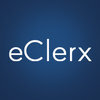

Eviden



10+ Eviden Financial Analyst Interview Questions and Answers
Q1. What is Capital Market.
Capital market is a financial market where individuals and institutions trade financial securities.
Capital market facilitates the buying and selling of long-term debt and equity instruments.
It provides a platform for companies to raise capital by issuing stocks and bonds.
Investors can buy and sell securities such as stocks, bonds, and derivatives in the capital market.
The capital market includes primary market where new securities are issued and secondary market where existin...read more

Q2. What is Derivatives and Types
Derivatives are financial instruments whose value is derived from an underlying asset. Types include futures, options, swaps, and forwards.
Derivatives are contracts between two parties that derive their value from an underlying asset.
They are used for hedging, speculation, and arbitrage.
Types of derivatives include futures contracts, options contracts, swaps, and forwards.
Futures contracts are agreements to buy or sell an asset at a predetermined price on a future date.
Option...read more

Q3. What is Reconciliation
Reconciliation is the process of comparing and matching two sets of records to ensure they are in agreement.
Reconciliation involves comparing financial records, such as bank statements and general ledger accounts, to identify discrepancies.
It is used to ensure accuracy and integrity of financial data.
Reconciliation can be done for various purposes, such as bank reconciliation, intercompany reconciliation, or balance sheet reconciliation.
Examples of reconciliation include matc...read more

Q4. What is capital market? What is BRS?
Capital market is a platform where companies and governments can raise long-term funds through the sale of securities. BRS stands for Bank Reconciliation Statement.
Capital market is a market for long-term securities such as stocks, bonds, and mutual funds.
It provides a platform for companies and governments to raise funds for their long-term projects.
BRS is a statement that reconciles the bank balance as per the company's books with the bank statement.
It helps in identifying ...read more

Q5. Diffrence between Salary and Wages
Salary is a fixed amount paid to an employee on a regular basis, while wages are paid hourly or daily based on the number of hours worked.
Salary is usually paid on a monthly or annual basis, while wages are paid on an hourly or daily basis.
Salary is fixed and does not change based on the number of hours worked, while wages are variable and depend on the number of hours worked.
Salary is common for salaried employees, while wages are common for hourly employees.
Salary may inclu...read more

Q6. What is Mutual Fund
A mutual fund is a type of investment vehicle that pools money from multiple investors to invest in a diversified portfolio of securities.
Mutual funds are managed by professional fund managers.
Investors buy shares in the mutual fund, which represent their ownership in the fund's assets.
Mutual funds offer diversification by investing in a variety of stocks, bonds, or other securities.
They provide small investors access to professionally managed, diversified portfolios.
Mutual f...read more

Q7. What is Put Option
A put option is a financial contract that gives the holder the right, but not the obligation, to sell an underlying asset at a specified price within a specified time period.
Put option is a type of financial contract
It gives the holder the right to sell an underlying asset at a specified price
The holder is not obligated to sell the asset
The specified time period is also mentioned in the contract

Q8. What is Bank reconciliation,ctr.
Bank reconciliation is the process of comparing a company's records with those of its bank to ensure they match.
Bank reconciliation involves comparing the company's internal financial records with the bank statement to identify any discrepancies.
Common reasons for discrepancies include outstanding checks, deposits in transit, bank fees, and errors.
The goal of bank reconciliation is to ensure the accuracy of the company's financial records and to detect any errors or fraudulen...read more


Q9. What is investment banking
Investment banking is a financial service that helps companies raise capital and provides advisory services for mergers, acquisitions, and other financial transactions.
Investment banking involves assisting companies in raising capital through issuing stocks or bonds.
It also provides advisory services for mergers, acquisitions, and other financial transactions.
Investment banks act as intermediaries between companies and investors, facilitating the buying and selling of securit...read more

Q10. What is money market?
Money market refers to a segment of the financial market where short-term borrowing and lending of funds occur.
Money market instruments include Treasury bills, commercial paper, certificates of deposit, and repurchase agreements.
Participants in the money market include governments, financial institutions, corporations, and individual investors.
Money market provides liquidity and short-term funding for various entities.
Interest rates in the money market are typically lower tha...read more

Q11. what is corporate action
Corporate action refers to any event initiated by a public company that impacts its shareholders and securities.
Corporate actions can include dividends, stock splits, mergers, acquisitions, spin-offs, and rights issues.
These actions can affect the value of securities, ownership structure, and voting rights of shareholders.
Investors need to stay informed about corporate actions to make informed decisions about their investments.

Q12. What is capital markets
Capital markets are where buyers and sellers trade financial securities like stocks, bonds, and commodities.
Capital markets facilitate the buying and selling of financial securities
They include stock exchanges, bond markets, and commodity markets
Investors can raise capital by issuing stocks or bonds in capital markets
Examples include the New York Stock Exchange (NYSE) and the London Stock Exchange

Q13. Golden rules of accounting
The golden rules of accounting are fundamental principles that guide the recording of financial transactions.
The first golden rule is the Debit and Credit rule, which states that for every transaction, there must be at least two accounts involved, with one account debited and another account credited.
The second golden rule is the Real Account rule, which states that real accounts (assets, liabilities, and equity) are debited for increases and credited for decreases.
The third ...read more

Q14. What is Derivative
A derivative is a financial contract whose value is derived from the performance of an underlying asset, index, or interest rate.
Derivatives can be used for hedging, speculation, or arbitrage.
Common types of derivatives include options, futures, forwards, and swaps.
Example: A call option on a stock gives the holder the right to buy the stock at a specified price within a certain time frame.

Q15. Golden rules of account
Golden rules of accounting are basic principles that guide the preparation of financial statements.
The accounting equation must always balance: Assets = Liabilities + Equity
Every transaction should be recorded in the books of accounts
Separate personal and business transactions
Consistency in accounting methods and policies
Accrual basis of accounting should be followed

Q16. Life cycle of trade
The life cycle of a trade refers to the various stages involved in executing a financial transaction.
The trade life cycle begins with the initiation of a trade, where a buyer and a seller agree on the terms of the transaction.
Next, the trade is confirmed, which involves verifying the details of the trade and ensuring all necessary documentation is in place.
Once confirmed, the trade is executed, which involves the actual exchange of the financial instruments or assets.
After ex...read more





Top HR Questions asked in Eviden Financial Analyst
Interview Process at Eviden Financial Analyst

Top Financial Analyst Interview Questions from Similar Companies









Reviews
Interviews
Salaries
Users/Month












